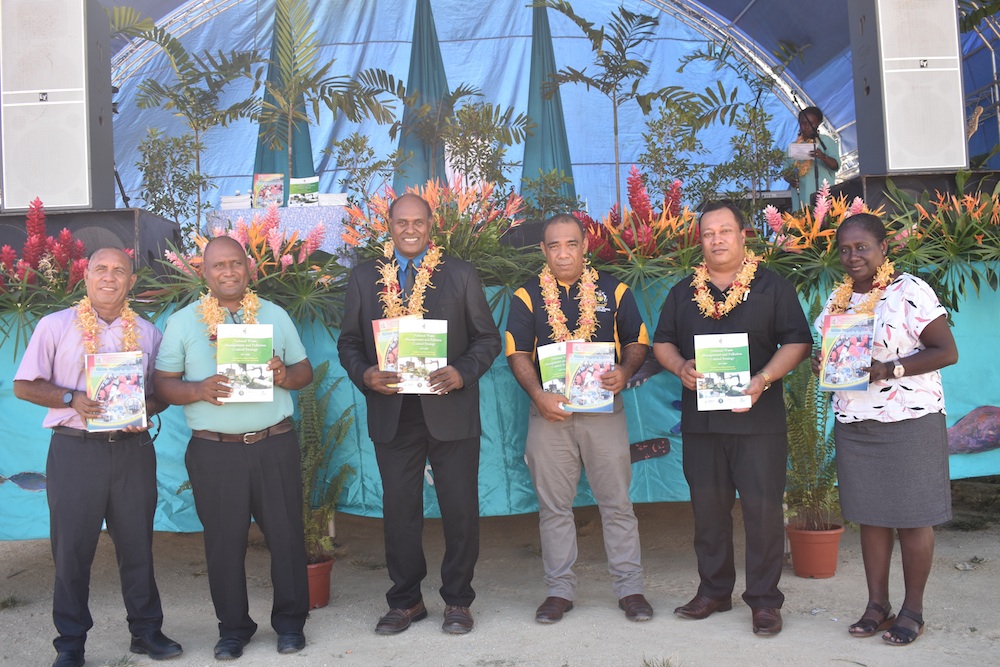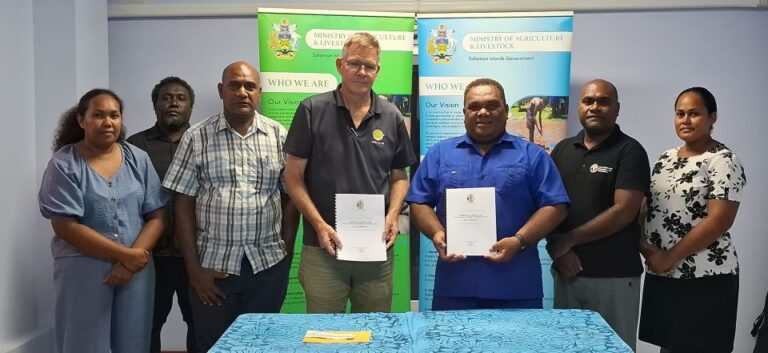BY AGNES MENANOPO
THE Ministry of Environment, Climate Change, Disaster Management and Meteorology (MECDM) has launched its two key policies in pursuit of better environmental management in the waste sector.
The two key policies; the National Waste Management and Pollution Control Strategy 2017-2026 and the National Implementation Plan (NIP) for the Stockholm Convention on Persistent Organic Pollutants were launched during the commemoration of the three events: World Environment Day, World Ocean Day and Coral Triangle Day in Honiara.
The formulation of the National Waste Management and Pollution Control Strategy was part of the national government’s efforts through the MECDM to strategically address waste and pollution issues.
Permanent Secretary for MECDM, Dr. Melchior Mataki said the launching of the strategy was the result of the efforts, contributions, and involvement of a broad range of stakeholders including provincial, national and international stakeholders and partners.
“Some key tasks of the strategy include: provinces needing to have in place basic waste management and pollution control systems such as designated landfills, reliable waste collection systems, application of the 4Rs (Refuse, Reduce, Reuse, Recycle) principles, conduct appropriate research and training and encourage public and private partnerships.
“In addition, legislative amendments to ban environmentally taxing materials such as single-use of plastic bags, and to have predictable finance and enable proper waste management and pollution control, and transition our industries to cleaner production technologies,” Dr. Mataki said.
In regards to the Stockholm Convention National Implementation Plan (NIP), Dr. Mataki said the work was made possible with financial and technical support of UNEP, contributions and the involvement of a broad range of local stakeholders.
“The NIP outlines how the Solomon Islands will meet its obligations as a party to the Convention.
“More specifically, it provides a platform for the Solomon Islands to manage chemicals including Persistent Organic Pollutants in an environmentally sound manner,” Dr. Mataki said.
He acknowledged the development partners and regional organizations, in particular, the Japanese International Cooperation Agency (JICA), Japanese Technical Cooperation Project for Promotion of Regional Initiative on Solid Waste Management in Pacific Islands Countries (J-PRISM) and the Secretariat of the Pacific Regional Environment (SPREP) for their financial and technical contributions to the strategy.
He also acknowledged NIP Project National Coordinating Committee, line ministries, provincial governments, NGOs, private sector and other stakeholders who have contributed towards the formulation of the policy document.




